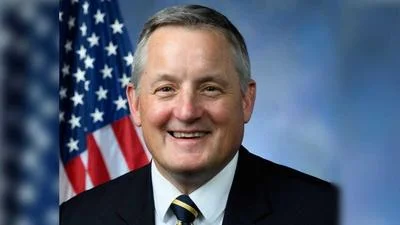Congressman Bishop (D-GA), Chair of the Agriculture, Rural Development, Food and Drug Administration, and Related Agencies Appropriations Subcommittee, delivered the following remarks at the Subcommittee's markup of its fiscal year 2023 bill:
Before us is the Chairman’s mark for the fiscal year 2023 Agriculture, Rural Development, Food and Drug Administration, and Related Agencies Appropriations bill. The bill and the accompanying report have been a huge undertaking in a short amount of time, and I am incredibly proud of the work we’ve done.
Let me take a moment to express my gratitude for the Ranking Member of the Subcommittee, Dr. Harris. I continue to enjoy the opportunity to work with you to produce a strong bill.
Today, we are considering a bill which touches the lives of every single American. We all eat the food, rely on the medicine and medical devices, and use the fibers and materials made possible and kept safe by this bill. This bill’s investments in our rural communities as well as the institutions that develop our agricultural sector and safeguard our medicine and food are vital to our country’s well-being.
This year our subcommittee held 5 hearings, including one with USDA Secretary Vilsack and another with FDA Commissioner Califf. We also held a hearing on the infant formula crisis in which we heard from four witnesses on how the crisis is impacting families and local grocery stores.
Our fiscal year 2023 allocation is $27.2 billion, compared to the fiscal year 2022 enacted level of $25.125 billion – an 8.3 percent increase.
This bill continues to invest in key agency-wide priorities, including investments to ensure equitable participation in USDA programs, address the impacts of climate change, and enhance staff and leadership offices at USDA.
Supporting our rural communities remains a top priority. In total, the bill provides more than $4.2 billion in budget authority for Rural Development programs to fund critical infrastructure, such as water and wastewater systems, and rural housing needs. The bill invests more than $545 million for rural broadband expansion, including $450 million for the ReConnect program. The bill creates two new lending programs for hard-to-reach communities. The first offers a 1% interest rate on water and waste disposal loan projects in distressed areas, making these desperately needed improvements more financially viable for distressed communities. The second program is designed to improve home lending opportunities for Native American Tribes where, traditionally, lending has been difficult and complex. These efforts will further maximize Rural Development programs within the communities they are intended to serve.
The bill also provides over $3.1 billion for farm and conservation programs. This includes $61 million to resolve ownership and succession of farmland issues, also known as the “heirs’ property” issue, which predominately affects black farmers and has led to the loss of millions of acres of privately held farmland.
The bill provides a historic level of funding for agricultural research, including $500 million for The Agriculture and Food Research Initiative, which is the highest level ever. And I am proud of the investments we make in our 1890 and 1994 land grant universities, and Hispanic serving institutions – all of which are significantly over their 2022 levels.
The bill continues our steadfast commitment to our country’s long tradition of humanitarian assistance by including $1.8 billion for Food for Peace grants and $265 million for the McGovern-Dole program. Both are historic highs.
The bill fully funds the SNAP, Child Nutrition, and WIC programs to meet expected participation in FY 2023. The bill also provides additional protections for SNAP recipients by providing a “such sums” appropriations for the fourth quarter of fiscal year 2023 to ensure SNAP does not run out of money.
In this bill, we provide $3.66 billion for the Food and Drug Administration. Within this total, there are several important investments, including increases to address the opioid crisis, and for ALS treatments, foreign unannounced inspections, and the Office of Minority Health. The bill provides $7 million in support of the Administration’s Cancer Moonshot and fully funds the request for work on chemicals in human food.
And finally - the Community Project Funding requests. The bill provides funding for 134 projects, totaling over $192 million.
I ask for your support of this bill.
I want to thank my personal staff, Kenneth Cutts and Tynesha Boomer, and the subcommittee staff, Martha Foley, Diem-Linh Jones, Perry Yates, Joe Layman, Justin Masucci, Dallas Selle, and Yana Zamora, and Pam Miller on the minority staff for their extraordinary work on the bill.
Source: https://appropriations.house.gov/news/statements/chairman-bishop-statement-at-subcommittee-markup-of-fiscal-year-2023-agriculture








